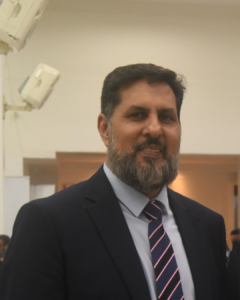By Al Qalam Reporter
It is better for parents to start saving for their child’s education from the day they are born because by 2025, the estimated cost of good tertiary education could cost as much as R107 000 a year, according to Al Baraka Bank.
Al Baraka Bank’s Marketing Manager, Yunus Paruk, maintains that it is never too early to begin a children’s education savings scheme to offset growing costs.
“The reality is that school and university education costs account for a huge portion of one’s monthly income and these costs will continue spiralling. The educational choices you make for your children could well lead to financial stress once your young ones reach high school, unless you have planned for their education from a very young age,” he warned.
It is estimated that tertiary education could cost as much as R107 000 a year by 2025.
He added: “There exists an unfortunate trend of putting-off saving for our children’s education until they are already in junior high school, which is really too late to start the process, especially as the cost of education appears to outpace inflation.”
“While education remains a top priority for South African parents, steep annual tuition fee hikes versus average salary increases means that many people are barely able to keep pace. The solution lies in establishing a good financial plan for your child’s education, just as one would for any other long-term goal. The secret is to start saving for your children’s education as soon they are born. The sooner one starts an educational savings scheme, the sooner you will see your money grow,” Paruk stressed.
He said there was a need to ensure long-term benefits by commencing the savings process early, opening a savings account specifically for education cost purposes and added that people should look beyond the basic cost of education, also taking into account auxiliary costs, such as additional tuition, transport and children’s living expenses.
“It is important to maximise any opportunity to put money aside. A good idea is to ask relatives to support your savings initiative by providing money for your children’s education as birthday gifts,” he said.
It was important not to be tempted to dip into one’s educational savings for any other reason than to pay educational costs.
“Islamic financial institutions provide a myriad of savings and investment options, including Unit Trusts and Tax-Free Savings. Unit Trusts are generally for a medium-term (five-year) to long-term time-frame. Investments may fluctuate according to the volatility of the market. Al Baraka Bank offers the Unit Trust option via the Old Mutual Al Baraka suite of Unit Trusts, which are Shariah-compliant.”
Paruk said that a safe alternative would be a tax-free investment scheme, the underlying conditions of which provided for the investment of a maximum of R36 000 per tax year and a R500 000 lifetime contribution limit.
The Government’s introduction of tax-free investments was to encourage a culture of saving, with enhanced tax benefits, in South Africa. Only licensed banks, long-term insurers, the National Government, mutual banks and co-operative banks may provide such offerings. Islamic banks are also included in this initiative and provide for excellent savings vehicles.
“There can be no question, that educational costs will play a critical role in the lives of parents wanting to provide their children with a quality education – at both school and tertiary levels – and this should be motivation enough to begin saving early and to maintain the discipline of saving throughout their children’s formative years,” Paruk said.


